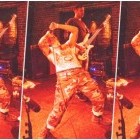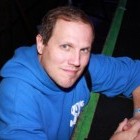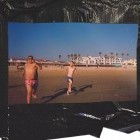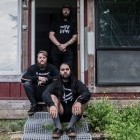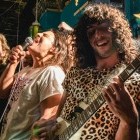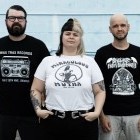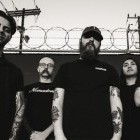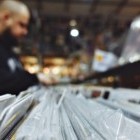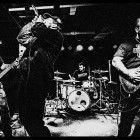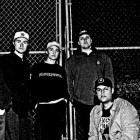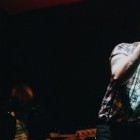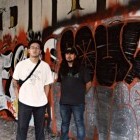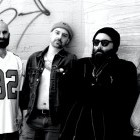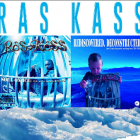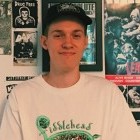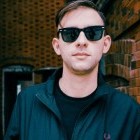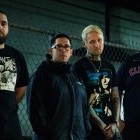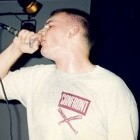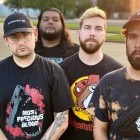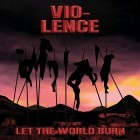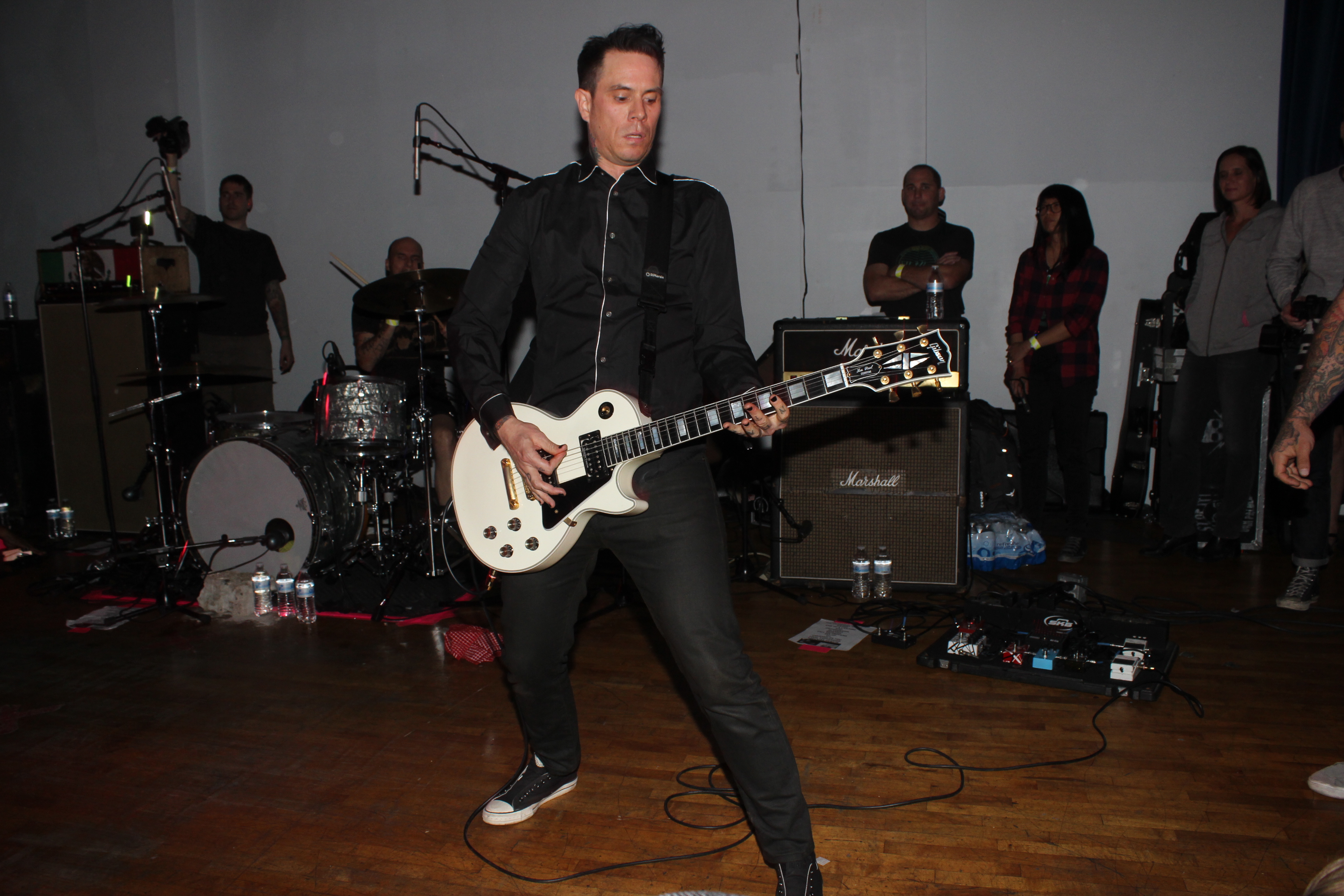
Having played in two of my favorite bands from the '90s (Unbroken and Kill Holiday), Steven Andrew Miller will always get my respect. The guitarist (and sometime vocalist) is also a fellow Britpop fanatic, and that kind of devotion goes far with me. In addition to his work with Unbroken and Kill Holiday, Steven's past work also includes '90s emo band, Julia, plus the short-lived groups The Landslide and Crushed on You.
Currently, Steven is handling guitar responsibilities in Distant Beds, a San Diego-based band that will you'll absolutely lap up if you love DC stuff like Swiz and Dag Nasty.
So, here we are in 2017, and even though he just welcomed a baby into his life, Steven still managed to carve out some time to do the following interview about his life and career. Enjoy!
Where were you born and raised, and what kind of kid were you?
I was born and raised in San Diego. I’d like to think that I was a good kid. I didn’t really get into any serious trouble.
Do you remember your first musical loves?
I’ve been into music since birth by default because of my parents. The first genre of music I was into was classic rock and also what was considered metal at the time. Examples would be Judas Priest, Mötley Crüe, Ratt, Dio, Ozzy, etc. My first love, and band that was my own, would be Def Leppard. My first record I ever purchased was On Through the Night by them. And by purchased I mean my mom handed me the money to pay the cashier. I had to have been 6 or 7 at the time.
Did you have someone who introduced you to the worlds of hardcore and punk?
I can’t say anyone really showed me or my close friends the way. We were always into music and discovering punk and then hardcore just seemed like a natural progression. Then through punk you end up meeting more people and then the experience really starts to open up.
How would you describe your high school experience? Were you a decent student, or were you already hugely distracted by music? What crowd did you hang out with at school?
I didn’t like school very much. I do like learning but really about things I’m interested in. Being forced to study things and constantly being told what is the right way or the wrong way always bothered me. I could have been a decent student if I put forth the effort. I had mostly AP classes when I started high school but I felt like it was too much unnecessary work. So, after a discussion with my parents, I convinced them let me take regular classes guaranteeing them I was still going to end up with the same piece of paper as everyone else. And I did. You could say I was distracted. Playing in bands the entire run of high school definitely kept me distracted. Because of punk my social life exceeded far beyond the confines of high school. But while at school I had a close knit group of straight edge kids that all stuck together.
SEE ALSO: 2016 interview with Rob Moran (Unbroken, Narrows, Some Girls, Over My Dead Body).
Did you play in any bands before Unbroken?
Yes and no. Was I trying to play in bands? Yes. Were they successful? Not at all. When I was 13 I sang in a band called Nation Without a Clue which was very punk but leaning more towards the goth side of things. [Future Unbroken member] Eric Allen played bass, [future Unbroken member] Todd Beattie played drums, and Cliff [Cunningham], who would go on to play guitar in Struggle with Eric, was on guitar. After that there were a few attempts at trying to get some straight edge bands formed but no success.
When I spoke with Unbroken bassist Rob Moran in 2016, he said the following about the band's formation:
"I met Eric Allen and Todd Beattie at an Earth Day event the day Judge was playing at a friend's garage in Chula Vista in 1990. A mutual friend, Angela, introduced us. A year later, they had a band going and needed a bass player, and I had picked up the bass a year or two prior to meeting them. They asked me to join and we started playing as a four-piece. Steven Andrew Miller came along about a year or so later, and Unbroken started. Dave was living in San Diego, by way of St. Louis, and would come around to our shows now and again. When the previous singer left, we asked Dave Claibourn to join, and that lineup remained to the end."
What do you remember about the circumstances around you joining Unbroken?
Eric and I had been friends since Kindergarten and I met Todd in the 7th grade. And we did everything together from skating to starting bands. But somewhere in 1989, I think it was, we had a bit of a falling out between me and the two of them. Totally over dumb and immature shit. But even though we weren’t spending any time together, our paths were still aligned. We pretty much coincidentally traded the combat boots for vans and cut the mohawks and devil locks off and basically adopted the Southern California straight edge look of that time. They ended up forming a few pre-Unbroken bands before meeting up with Rob and this guy named Brian Hill and then forming Unbroken. Around this time we started becoming close friends again and I was around for all their shows and was in the studio bearing witness to an awful demo. Glad my hands are clean from that one, guys [laughs].
Then Eric said he wanted a second guitar live and I was under the impression I would play shows just helping them out but then he told me I was in the band. We linked up with New Age and were all set to record but then Brian Hill went MIA and we couldn't locate him at all. I understand there’s two sides to this story but we had to move on. Dave was new to our city and we really enjoyed being around him so we asked him to sing.
What was the San Diego hardcore scene like during those earlier Unbroken years? Were you getting a lot of local shows, or did you find that you had to often travel up to the LA/OC area?
We played wherever we could during those years: Houses, garages, coffee shops, record stores, outside, and occasionally we’d find ourselves in a real music venue. This was all in San Diego. We did play a lot of shows in Orange County and places in the Inland Empore and north San Diego County, up the 15 Freeway, which most of us down here don’t consider San Diego at all.
Moving on to Unbroken’s first album, Ritual, Rob Moran told me the following: “I feel it is contrived hardcore, and why hardcore was a bit dull from 1990 to 1993. There are moments of it that I enjoy, but as a whole, it's a shitty record.” What do you think about that album?
I think that record is an absolute turd [laughs]. It should never have been made. We were in such a rush to get something out and most of that material had been written before I joined. My only contribution to that record is "My Time." "Zero Hour" would be the only other song on there I like. We were already writing songs that would end up on Life. Love. Regret. during that time but it’s obvious that the two sounds had nothing to do with each other. It all worked out just fine in the end. But to answer the question, that record is unlistenable.
What’s the story behind Julia, another group you played in during that period? As far as I remember, you played on the band’s first 7”.
I loved Julia and quitting that band and not playing on their LP is something I regret doing. Because Dave moved away back home to the Midwest, Unbroken really only played during summer and winter vacations. So Julia was really the main band I was in all through senior year and first (attempted) year of college. We played a lot of shows and I played on the first two 7”s and then something happened to where I just wasn’t having as much fun with it anymore. Looking back, I can’t even remember what my deal would have been. I was 18 at the time so probably something not even that serious but most likely felt like the world at the time.
Now, going from Ritual to Unbroken’s next album, 1994’s Life. Love. Regret., Rob said that the members of the band were each going through some kind of turmoil in their respective lives. Thinking back, what were you going through during that era, or is it too personal to get into?
I don’t think it can get any more personal than that album. For me, personally, though, I don’t think I was dealing with too much turmoil that exceeds the basic levels of general teen angst, shyness, and social awkwardness. I know Eric was having a bit of a rough go at the time and his lyrics really reflect those things. The lyrics I contributed to the album were more from an outsider’s point of view, but for Eric. I wrote “End of a Lifetime” because of Eric’s grandfather, who lived on my street, died really quickly from cancer. And I watched Eric deal with a sad break up and wrote “Curtain” with him in mind as well.
Life. Love. Regret. was recorded by Jeff Forest at Doubletime Studios in the fall of 1994. Did you have a sense that you guys were working on something special, or were you too wrapped up in the excitement/anxiety of the actual tracking?
I can’t say we had any clue that we were working on something special. If anything, we probably thought it would tank because we were nothing like any of the other bands of that time. I’m not sure how long it took, but we did it really quickly. It’s pretty much a live record. Eric, Todd, Rob, and myself played all our parts together at the same time. There’s mistakes from doing that but we didn’t care. We preferred it that way. And then for guitar overdubs Eric and I played again at the same time. And working with Jeff is always great which is why all of our bands went there and continued to go there.
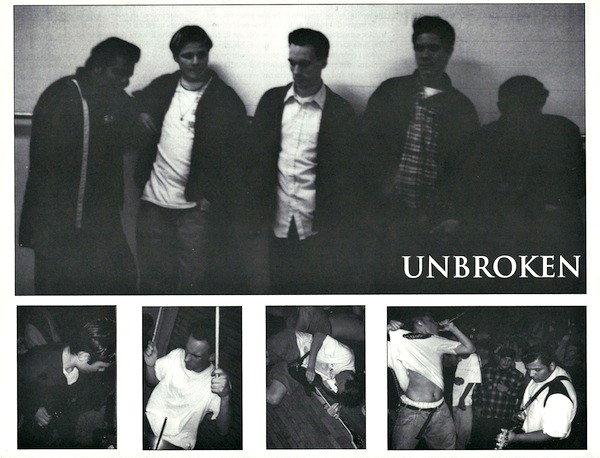
I’ve always loved the graphic design and layout aesthetic of the band. Who was the person in the band that drove that aspect of things, or was it more of a democratic process?
Honestly, I’d give the majority of all that credit to Eric. He always had in mind what the complete package was going to be. And we didn’t fight it because it was great stuff.
SEE ALSO: Parody Hardcore Bands
What were the songs from that album that had the most “pop” when you performed them live?
I think "Razor" and "Blanket."
What is your favorite song from that album?
Not sure. I’m trying to think, but to be honest, I don’t think I have a favorite. Maybe "D4" because it’s such a complete song in my opinion. It really grabs you out of the gate and then the build after the break can be pretty intense.
From doing No Echo and speaking with so many record collectors, I know Life. Love. Regret. is a hugely important album for many people. Why do you think it has resonated with so many folks for so long?
I don’t think I can really give an answer. Maybe it’s because we were being so honest? From what I understand we said a lot of things that people could really relate to and nerves were struck. We always viewed the content as a diary about ourselves but I think it’s a great thing that it helped other people out as well.
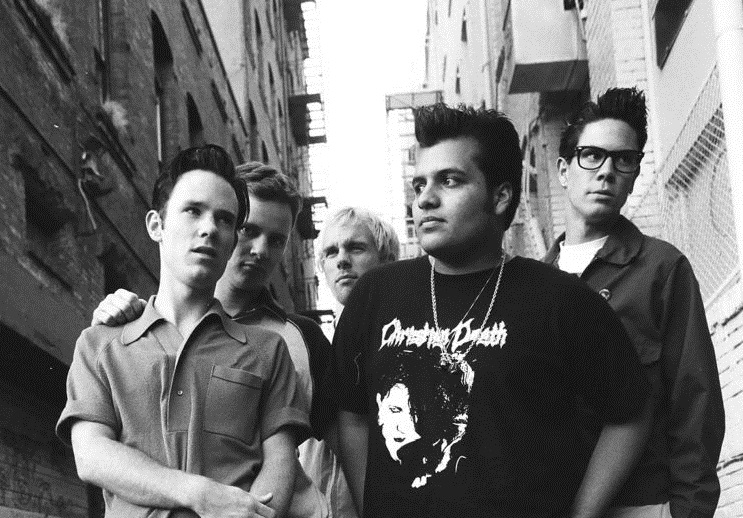
To reference my interview with Rob Moran one last time here, this is what he said when I asked him why Unbroken broke up in 1995:
"In the end, Unbroken was about to turn into a rock 'n' roll band. The Drive Like Jehu/Rocket From the Crypt/Jawbreaker influences were starting to creep into our sound more and more. While in Europe, we had decided that we would end it in late '95. We knew that if we continued, we would lose what we created and that we would have been a very different-sounding band."
What are your thoughts on that? Why do you think you guys broke up?
The main we reason we broke up is that we knew we had accomplished all we had really wanted to do and we wanted to go out on our terms instead of being shown the door. It was also really important that we started out with the same five people and ended with the same five people who remained straight edge though the entire run. About the music I always feel there was a but of Jehu in the vibe but that’s also a San Diego thing. Fall on Proverb is definitely me taking influence from Drive Like Jehu directly. As far as the Rocket From the Crypt thing, Rob isn’t wrong. Right before we were playing our final two shows, Eric had a couple of songs written that he was insistent on us playing. I don’t even remember them and we knew they weren’t really us but I’m sure there was a rad riff or two in there somewhere he wrote that I loved playing.
The next musical focus for you was Kill Holiday, a melodic band that early on also featured Rob Moran in the lineup.
Kill Holiday formed during the final year and a half of Unbroken and purely by chance. I was in a car riding with Rob and Barry (Amenity, House of Suffering, Kill Holiday) and they were talking about doing a band. From the backseat I asked if I could play and sing. I didn’t have any songs or an agenda at the time. It was really intended to be a side project more than anything else.
SEE ALSO: Best Morrissey and Smiths Rockabilly Songs
I remember getting the Monitor Dependency EP when it first came out and thinking that it had a sound somewhere in between Quicksand and Farside. Tell me a bit about that record.
Quicksand during those years (92-97) was a huge influence on all of us with everything we were doing. I think with the songs I was writing I was finding a way to fuse Quicksand and Jawbreaker into one band but without even realizing what I was trying to do. New Age wanted to release an EP which became a 2-song 7” and 4-song CD. It was my first time ever singing on a recording unless you count the backup stuff I did in Julia. Rob wasn't in the band for very much longer after that.
Kill Holiday then released a split 7” with Dempsey, followed by an EP entitled Meant to Let You Down. On the two songs on that record, your vocals are stronger, more distinctive, and I love the croon you turn on during certain words/lines. Was this all attributed to the band playing more shows together and you feeling more comfortable as a vocalist?
All of the above. We were definitely playing out a lot and I was also becoming comfortable with singing. It was always the talking between songs I had problems with.
What kinds of bills was Kill Holiday predominately playing back then? I’m sure since the Unbroken connection was there, you played on hardcore shows, but the music had more in common with the kind of stuff labels like Jade Tree and Revelation were putting out in the mid to late ‘90s.
I think it’s safe to say we played mostly hardcore shows, but it varied. San Diego has always been a different scene meaning that no two bands playing the same show ever sounded a like. So we could easily play with aggressive hardcore bands and then easily play with bands that came though like Bluetip or Texas Is the Reason.
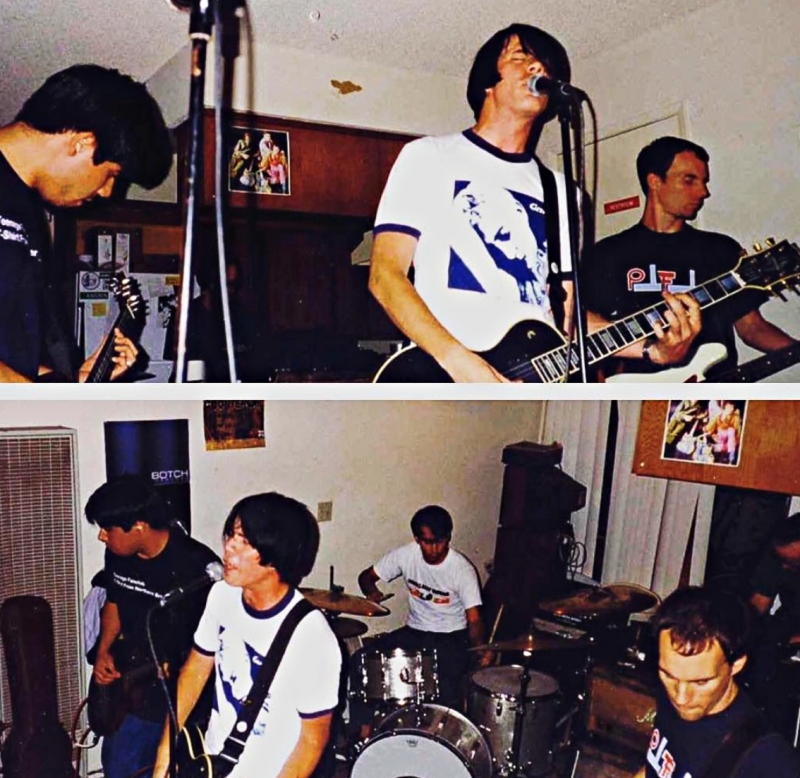
Speaking of Revelation Records, the label released the sole Kill Holiday full-length, Somewhere Between the Wrong Is Right, in 1999. Now, I know I complemented your vocals on the Meant to Let You Down 7”, but your performances on the album are even stronger. That, combined with the songwriting and sound of the record, make for the best material the band ever released. It’s like an American band playing Britpop. Another American group that had that same kind of vibe during that period was The Sheila Divine.
The change in sound was a complete accident. Barry decided to leave the group and we brought in our friend, Gabe Gamboa (I Wish I), to join in on drums. The old songs just didn’t sound the same. This had nothing to do with Gabe at all but more to do with what my ears were used to hearing because they are two very different styles of drummers. I had already written three songs for what the new version of Kill Holiday became and suggested we try them out. Gabe was and is a huge lover of Ride and The Stone Roses and it made that transition seamless.
Do you think being on Revelation was a mixed blessing for Kill Holiday? On one hand you were with a company with a lot of visibility within certain scenes, but for what the band was doing musically, you probably would have fared better with a different label?
It was mixed. When Revelation took an interest in us Barry was still playing and we were still playing post hardcore sounds. When Gabe joined and when we changed direction, it never really occurred to us at the time that we should let them know what we were up to. Instead we did the record and turned it in and from I understand there was a lot of “what the fuck is this?!” going on at the office. Being on Revelation was rad because it was like a personal triumph to be part of the catalog with so many bands I grew up loving. But at the same time we were hindered because the promotion for us was simply not there. It was still hardcore and metal magazines that wanted to do interviews and the same for the shows when we would tour. Mix that all together with a sound that people either did not get or weren’t ready for. Who knows how it could have gone with a different label but I’m just grateful it was even released at all.
Why did you decide to break Kill Holiday up?
It was starting to become exhausting. I made a mistake by getting too deep lyrically with the subject of dealing with [Unbroken singer] Eric Allen’s death. That’s how I was feeling at the time of writing and I stand by them. However, going on tour and having to repeat those words night after night because too much for me. The words have never lost their sincerity, but after a while I felt like I was going through the motions as more time passed by and I was emotionally moving on. Todd quit the band as we replaced him for a few shows we had booked and then that was it. I wanted something fresh that didn’t have any weight or strings attached to it. Gabe and I formed the short-lived band, The Landslide, and did a single with Dim Mak and then that ended as well.
Your next band was Crushed on You, a project not too sonically removed from what Kill Holiday did.
Crushed is basically my release for my love of the Beach Boys, Jesus and Mary Chain, Ramones, and all things Phil Spector. It was a pop punk band but more straight forward that what you’re typical pop-punk would be considered. This was more rooted in a love for T Rex than say, NOFX. This band existed during my time of living in Orange County. We probably could have done more, probably wanted to do more as well but never made the “more” happen. We did a 5-song demo and that’s about as far as it went. The members have talked about revisiting it from time to time but I’d say that’s unlikely at this point.
That brings us to your current band, Distant Beds. This time out, you’re playing with musicians who have also been in such groups as Heroin, Narrows, and Impel. The only stuff I’ve heard so far is a YouTube video taken during your first show back in May. From what I’m making out in that video, the band’s got a late ‘80s DC sound going on.
This is a band I’ve been wanting to do forever and I’m glad it’s finally become a reality. I started writing music for the in the mid-'90s and it’s seriously taken this long for things to come together with the right people. The vibe is definitely influenced by DC hardcore. Aside from late '80s hardcore from OC, DC bands have always been my favorite. They always had the best riffs, tones, musicians, and vibe that went far beyond just playing hardcore. And two of my notable guitar heroes in hardcore [Dave Smalley and Jason Farrell] both come from that scene and have definitely shaped how I play and what I write. Right now we’re taking a break since the birth of my son. We were trying to record a full-length but to our own fault, I personally felt we were racing the clock trying to get things done before my son came. All the work we did sounded rushed and I feel we could do a better job in a much more relaxed setting as soon as we pick things back up.
Outside of music, what else is keeping you busy these days? Congrats on your new baby!
Thank you! Right now he’s definitely taking up the majority of free time when I’m not at work.
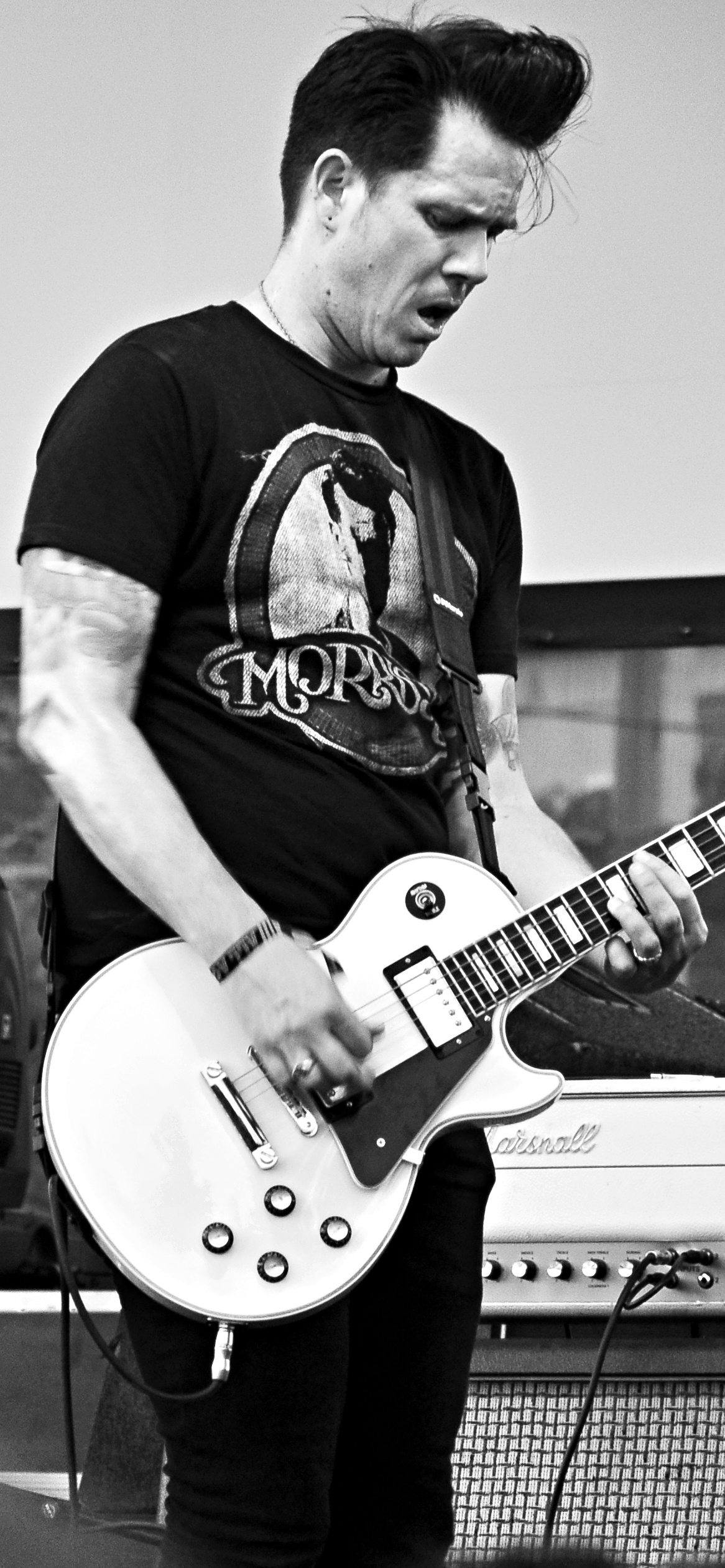
I always like to close out my interviews with a fun yet tough question. So, if you had to pick your all-time favorite record from a San Diego band, what would it be and why?
This is difficult. There are too many great and influential bands that have come from this city! For 7” I’d have to go with Amenity’s This Is Our Struggle. They paved the way for a band like Unbroken to exist in this city.
And for an album I’ll go with the first Drive Like Jehu LP. Why? Because it rips and it goes far beyond genre classification to lay influence on so many bands no matter the sound.
***
Head to Distant Beds' Facebook page to find out more about the band.
Tagged: kill holiday, steven andrew miller, unbroken

